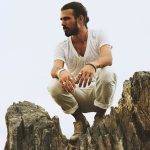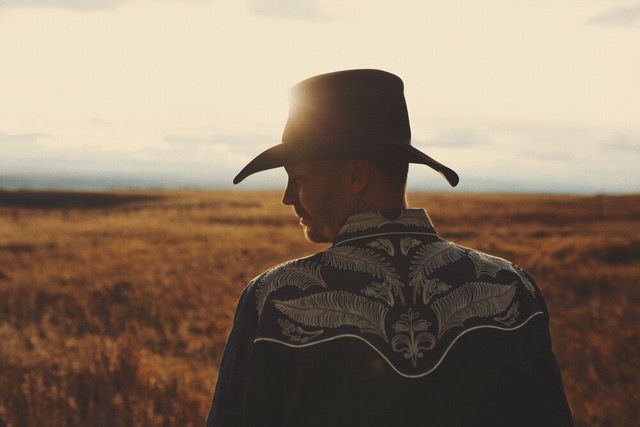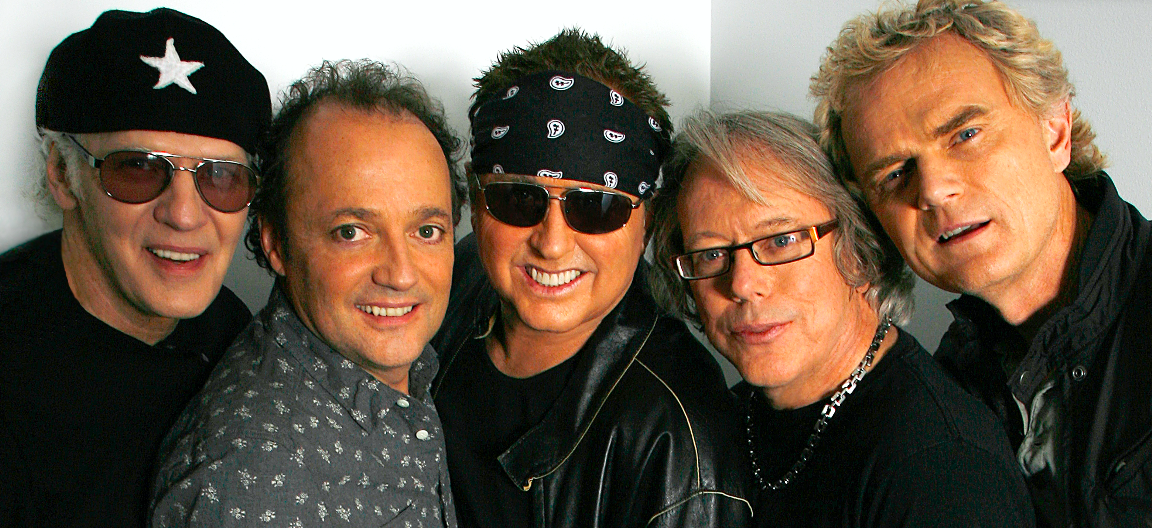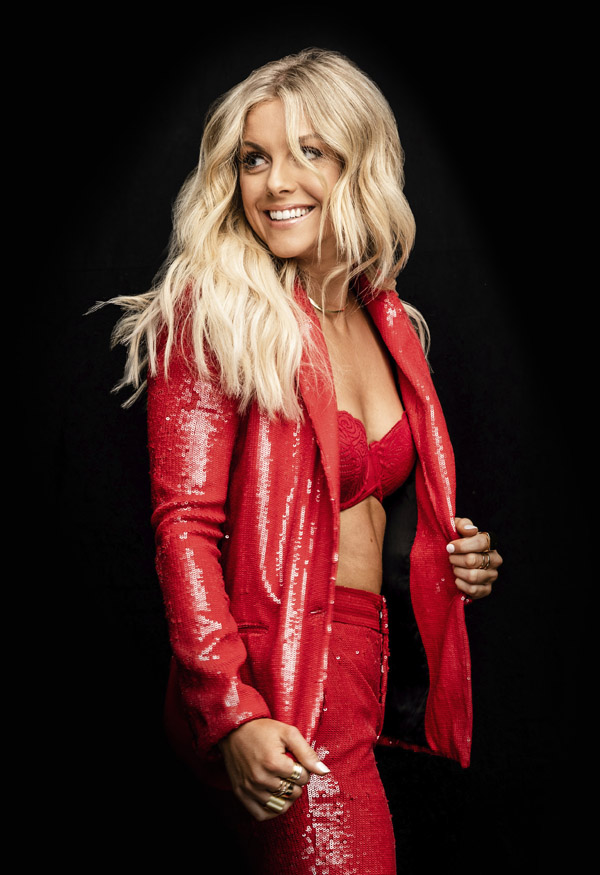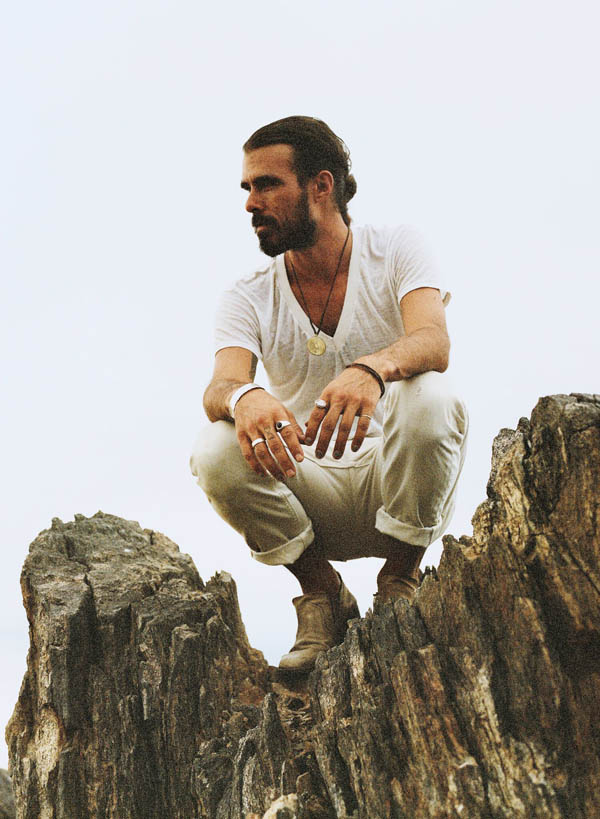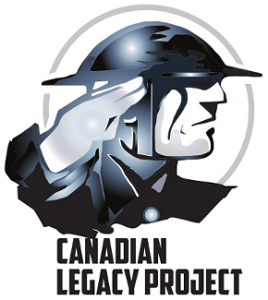MUSICIANS
Calgary is fortunate to have so many incredible musicians who are willing to share their talent to help the cities they grew up in.
Reuben and the Dark is the spirited folk-rock outfit led by Reuben Bullock, whose music blends introspective lyrics with the irrepressible pulse and complicit harmonies of his band. On the Calgary-bred frontman’s third studio album, un | love, Reuben opens a breathtakingly honest window into one of the most dramatic times in his life, baring the emotional depths encountered at life’s crossroads. Reuben and the Dark’s music is a heartrending yet free-spirited confrontation of that place, a spiritual meeting that Bullock conjures with his audience nightly, revealing more with each transformative performance. Rising from his painterly, ashen lyrics, dancing on a tightrope of exultation, is the beauty of catharsis: the crystallization of psychic resonance between band and audience, shared through music.
“The essence of it is songs that connect people to the intangibles of our collective emotions,” says Bullock. “Together we get carried away, lost and found in the alchemy of the music.”
Produced by Reuben and the Dark with Marcus Paquin (The National, Timber Timbre, Local Natives) and Kevin Drew (of Broken Social Scene), un | lovemines this raw, unfettered emotion from within Bullock. The hard-wrought songs of Arms of a Dream (2018) and earthbound textures of Funeral Sky (2013) have become unshackled by spontaneity, with Reuben’s soulful voice emerging unbridled and fallible. On the new album, the bond with his band –core of Brock Geiger and Sam Harrison on guitars, Brendan “Dino” Soares on drums, Nathan Da Silva on bass –has unlocked the kinetic energy of songs like “rising,” refuting gravity on the soaring and anthemic “faultline,” and navigating hardship on the album closing “dancer.” With friendships dating back to early childhood, the band intuits the evolution of the songs, tapping into Reuben’s soul-searching intonations at the helm of each thrilling performance, each vibrational sing-along. Through his dense imagery, perhaps for the first time truly, shines a clear light, shot straight from Reuben’s heart –wide open, blown away, singing out, together untangling the pain.
When Kiesza went global in 2014, it wasn’t only her music fans fell for. The Canadian’s chart-topping hit Hideaway, a platinum seller streamed over a billion times, introduced a singer who danced like a young Madonna, packed her personality in to her pop and had the year’s most talked-about hair. Even Madonna was smitten, suggesting she should drink Kiesza’s blood.
A former Navy sniper, ballet dancer and beauty queen, Calgary-raised Kiesza is unique. She wrote for Rihanna and Jennifer Hudson, worked with Duran Duran and collaborated with Skrillex, Pitbull and Diplo. Her debut album, Sound of A Woman, sold more than a million copies. The double Juno Award winner was recording with an opera singer and the producer Stuart Price when, in 2017, she vanished overnight.
What fans didn’t discover until months later was that a car crash had left Kiesza with a brain injury and in so much pain that her career could have been over.
Hit by a taxi in her adopted home town of Toronto in the summer of 2017, Kiesza initially thought she had escaped lightly with just a bang to the head and a busted wrist. It wasn’t until the following day that her head began to swell and the balance on the left side of her body went. Tests revealed that electrical pathways to one side of her brain had shut down. The lack of treatments was terrifying.
“The trouble with traumatic brain injuries is that they all heal differently,” says Kiesza. “There is a lot of research happening, but the prognosis is still wait and see.”
For six months, Kiesza was confined to a darkened room in her house, meditating. She couldn’t watch TV – too bright, too loud. Just hearing people talk hurt. The prospect of performing again seemed impossible.
Nine months before the accident Kiesza had met the producer Chris Malinchak, with whom she had recorded an albums worth of material and a collection of Christmas songs. Seeing Kiesza’s struggle to return to work, Chris set up a room for her in his New Jersey home, where he has his studio.
“At first I could only write for ten minutes at a time,” says Kiesza. “Just thinking of words wore me out. My memory was still in pieces, but while I couldn’t recall past events very well, I could remember the feelings I’d attached to them. I began by putting those feelings into words.”
After a year of seeking alternative treatments, last summer, Kiesza set out on her first tour since the crash. Her starting point was Brooklyn Pride, apt for a longtime LGBTQ ally who began her career in gay clubs and wouldn’t be the artist she is today without the support of the LGBTQ community. Far removed from her former high-energy performances, the dates in the US and Canada were acoustic, with Kiesza playing ukulele.
“I started out as a folk singer and thought I might go back to that,” she says. “I’ve always played nylon-stringed guitar, but I no longer had the co-ordination for it, so I took up ukulele. 4 strings is far simpler!”
At the gigs, featuring a mix of new and old songs and a couple of covers stripped down, her songs became anthem’s for both Kiesza’s recovery and her new-found attitude to a life turned upside down.
‘It just so happens/That I like the way I’m fucked,’ was a lyric crowds latched on to in a song in which Kiesza refuses doctors’ drugs, embraces a mind that continues to play tricks on her and celebrates the determined survivor who now sees life a lot differently.
“My world view has dramatically changed,” says Kiesza. “Every time I’m on stage is a miracle to me. I’m not the same person I was even last year. I’m over the hump of wondering why this happened and feeling gratitude for the growth I’ve gained from it.
“The accident forced me to change in ways I couldn’t have imagined. I value my life so much more, but I also feel fearless. Musically especially. It’s important that everything I put out is an honest expression of who I am. I have to be happy with what I leave behind.”
2020 began with scorching new single When Boys Cry, a minimal, dancehall-dipped earworm built on finger clicks and buzzy bass that positioned Kiezsa as a synth-pop Cyndi Lauper. Flirtatiously fun but with a serious side, the song was begun pre-accident and completed after with Malinchak.
“It’s about men struggling to show their emotions,” says Kiesza. “In past relationships, I’ve found it hard to get straight answer from guys. They’re too macho to reveal their feelings, so you have to read between the lines to work out if they’re happy or not. You listen though grit teeth because they could be crying inside.”
In the night-shot video, clad in a sparkly gold suit, Kiesza doesn’t quite dance, but she’s spritely in high heels and spins a mean umbrella. The extent of her remarkable recovery is clear.
“I’m almost back dancing, which is pivotal to the plan,” says Kiesza. “I want to evolve dance music and expand my live show. I’d love to be to dance what Freddie Mercury was to rock, to bring that theatricality back. In fact, she will be returning to her high energy performance style in live shows planned for 2020.
“Don’t tell me it isn’t possible. If there’s one thing I’ve learnt in the last few years is that if you set your sights on something, it’s definitely within reach.”
Nothing now feels off-limits for the fierce redhead. Last year saw Kiezsa finding her feet again, literally. Her own shows were followed by a U.S. support tour with Mika, a fan keen to aid her recovery, and two new singles in the sensual Sweet Love featuring opera singer Philippe Sly and the buoyant You’re The Best.
Kiesza’s second coming necessitated a spring clean and the launch of her own label, Zebra Spirit Tribe. (The name refers to an animal healer in L.A. who helped her recovery after sensing the spirit of a zebra at the base of her spine.) Out went her old management and in came an almost entirely new team.
Problems with her former major label had been brewing for years. They objected to Kiesza’s leftfield ideas, including her theatrical project with Stuart Price. Matters had come to a head in early 2017 when Kiesza released Dearly Beloved, a song dedicated to her best friend, the artist Alicia Lemke, who had died 18 months earlier of leukemia.
On the sun-dappled track, Kiezsa played electric guitar, having been taught by Alicia’s boyfriend, Adam Agati, now her full-time guitarist, who accompanied her on last year’s acoustic tour.
“Dearly Beloved was a song that really connected with people at those shows,” says Kiesza. “People were actually crying. It’s a song that taps in to the raw truth, no sugar coating. Everything I felt came out in the lyrics and that’s how I always want my writing to be.
“Launching a label was a big undertaking, but I have a vision and I am determined to see it through. I want to be free to release whatever I like, whenever I like. I also plan to sign artists like me, who have eccentric ideas and struggle with major labels.”
So many songs have been written for Kiezsa’s forthcoming, second album titled ‘Crave’, that it may be a double release. It will definitely nod to the 1980s, a decade to which the singer has always felt an affinity.
“I love the quirkiness of ‘80s pop and its DIY spirit,” says Kiesza. “I’ve been working with Lick Drop, two 20 year old British producers who I met in London and brought to my house in L.A. Their energy is amazing. Just to have them around was inspiring.”
Retaking her rightful place on the electro-pop scene with the release of critically acclaimed come back singles You’re The Best & When Boys Cry, other new songs include new single ‘All The Feelings’, the sparkling ‘Can’t Be Saved’ and the funky, Off The Wall-tinged Crave.
Prepare for Kiesza’s triumphant return in 2020, this time totally on her own terms. And definitely dancing.
Sponsored by Business in Calgary and shop to it


Paul Brandt is the most awarded male Canadian country artist in history.
His 1996 debut RIAA certified Gold album Calm Before the Storm went on to sell one million albums internationally, propelled by the #1 single and wedding classic “I Do”. Stateside, his #5 and #1 charting songs “My Heart Has A History”, and “I Do” were the first to chart by a male Canadian Country artist on the US Billboard Top 20 since 1976.
Throughout his remarkable career, Paul has always focused on using his celebrity to help by shining a light on the lives of those less fortunate and has encouraged others to do the same. He has traveled extensively to developing countries around the world to raise awareness for various humanitarian aid organizations.
His 12 career albums have spawned hit singles, multiple Album of the Year awards, gold, platinum, and multi-platinum performances. According to Nielsen BDS, of the Top 25 Canadian Country songs, 6 were released by Paul Brandt, and his song “My Heart Has a History” is the most played Canadian Country song since the chart began. Paul is also the most played Canadian Country Artist on Country Radio in history (Nielsen BDS). He has had 27 top ten songs at Canadian Radio. His song “For You” (Brandt/Rosen) was selected to promote the 2002 major motion picture We Were Soldiers, and was performed by Dave Matthews and Johnny Cash. In 2015, Canadian Independent Music Association celebrated Paul’s reaching “Road Gold Status” as a top headliner and major box office draw in Canada, and his most recent EP Frontier was nominated for Album of the Year at The 2016 Juno Awards. The hit single “I’m An Open Road” from that collection is certified Gold.
In 2017, Paul Brandt was inducted into the Canadian Country Music Hall of Fame & Western Canadian Country Music Hall of Fame.
His 2019 Canadian “The Journey Tour” featured his most recent radio singles “All About Her” (Top 10 Canadian Country Radio) and “Bittersweet” (featuring Lindsay Ell) continue to speak to Brandt’s enduring impact and influence on country music audiences and industry as he played arenas across Canada. During the 2019 Canadian Country Music Awards, Paul was honoured with the Slaight Music Humanitarian of the Year Award for his accomplishments with his “Not In My City” (www.notinmycity.ca) movement, which seeks to end human trafficking with a focus on preventing childhood sexual exploitation. Recognizing his dedication to ending human trafficking and child sexual exploitation, in November 2019, Elder Leonard Bastien honoured Paul with a Blackfoot name: Buffalo Bull Shield.
As a recipient of the Queen’s Diamond Jubilee award and numerous other national and regional humanitarian nods, Paul is committed to serving those in need through various charitable endeavours including his Buckspring Foundation. A proud champion of The Great Trail, Paul is dedicated to creating and supporting spaces for respectful discussion and fostering meaningful community through his artistic platform
Paul always strives to surprise and delight with his art and prefers to take the road less traveled. With a passion for story and community, Paul enjoys using his celebrity platform to engage and connect with people in a deep and meaningful way
When he’s not creating what he calls “stuff the world needs”, he has been known to take on projects to help others do the same. He served as Mount Royal University’s “Storyteller in Residence” at the Bissett School of Business, where he worked with students to create business and social enterprise projects utilizing the Paul Brandt Brand. In 2019, Paul began working with students at the Southern Alberta Institute of Technology (SAIT), sharing his celebrity platform and inviting students to join him on his next creative project.
Paul lives with his wife Liz and their two children on The Buckspring Ranch in the foothills of Alberta’s Rocky Mountains.
Under the watch of a stock computer camera and above a gaffer-taped-up digital keyboard, Tate McRae broadcasts un-delayed, unfiltered, and undeniable feelings straight from the heart. The Calgary, Alberta singer and songwriter transmits emotion in its purest form by way of intimate instrumentation and dynamic delivery. By the age of sixteen, she quietly amassed 129 million YouTube views and a total of 90 million cumulative streams in addition to winning over fans worldwide to the tune of 1.7 million YouTube subscribers and 932K Instagram followers.
Now, this vulnerable approach fuels her 2019 debut for RCA Records.
“My songs are all of the words I can never say,” she explains. “I have a very hard time conveying my feelings through speaking, so I write in order to express myself. I sit in front of the piano and try to tell a story. Writing is how I let out everything that’s happened to me. It’s my way of really communicating.”
It’s been that way for Tate ever since her most formative years. As a lawyer, dad’s occupation took the family around the world. Getting a passport by the time she could walk, Tate lived in Oman and traveled to Egypt, Vietnam, Dubai, London, Thailand, France, Germany, Switzerland, and Spain all before settling back in Canada at six-years-old. Her mom, a dance educator, taught dance along the way and emerged Tate in the studio listening to music and exploring movement. Traveling continued for Tate after they settled back in Canada this time as a guest artist to countries like Mexico, Australia and all over the US and Canada. Tate is known for her storytelling and emotional connection to music.
“Being around the world opened up my creativity,” she says. “I draw inspiration from everywhere I’ve gone to. I’m the kid with a huge imagination, so traveling just expanded my knowledge.”
At home, she always “performed for family and friends,” bringing the show online through the launch of her YouTube channel in 2011. Simultaneously, she made a name for herself as a competitive dancer, training formally since the age of eight. She placed second runner up on Season 13 of the FOX series So You Think You Can Dance, achieved the “The Best Dancer” honor three times at the prestigious Dance Awards, and hit the stage for performances on Ellen, The Teen Choice Awards, and beyond. Not to mention, she lent her voice to NETFLIX’s animated Lalaloopsy in the role of Spot Splatter Splash. As her fan base burgeoned, she decided to share her first original song on YouTube, delivering the single “One Day” live in 2018. The video exploded with 27 million views as the track racked up 30 million Spotify streams. “Teenage Mind” followed with 12 million Spotify streams, and she inked a deal with RCA Records.
Introducing a singular style, her official 2019 debut single “Tear Myself Apart” pairs stark piano and static beats with vulnerable verses. Everything builds towards a confessional chorus, “I’m left alone to tear myself apart. You make it look so easy, turn around and leave me. I’m left alone to tear myself apart.”
“It’s a very dramatic and intense song, but it’s real and honest,” she admits. “It’s easy to get caught up in a relationship and take everything out on yourself. ‘Tear Myself Apart’ comes directly from the heart.”
As she readies more music and prepares to tour, Tate continues to connect on the deepest level possible—just like she did when she first started in her room back in Alberta.
“I just want to share my music with the world and hopefully make others feel something on a super personal level,” she leaves off. “My goal is for you to relate and hopefully be moved.”
For more than 40 years, LOVERBOY has been “Working for the Weekend” (and on weekends), delighting audiences around the world since forming in 1978, when vocalist Mike Reno was introduced to guitar hot shot Paul Dean – both veterans of several bands on the Canadian scene – at Calgary’s Refinery Night Club.
After being rejected by all the major U.S. record companies, LOVERBOY signed with Columbia Records Canada, entering the studio with producer Bruce Fairbairn and engineer Bob Rock to record their self-titled debut album, which went on to sell more than 700k records in Canada. Columbia U.S. released the album in Nov. 1980, which went on to sell more than 2 million albums in the States and four million worldwide.
Soon the band found themselves playing on mega tours with Journey, Bob Seger, Cheap Trick, ZZ Top, Kansas and Def Leppard, to name a few. They quickly became MTV darlings, being one of the first bands ever featured on the music channel.
With their trademark red leather pants, bandannas, big rock sound and high- energy live shows, LOVERBOY has sold more than 10 million albums, earning four multi-platinum plaques, including the four-million-selling Get Lucky, and a trio of double-platinum releases in their self-titled 1980 debut, 1983’s Keep It Up and 1985’s Lovin’ Every Minute of It. Their string of hits includes, in addition to the anthem “Working for the Weekend,” such arena rock staples as “Lovin’ Every Minute of It,” “This Could Be the Night,” “Hot Girls in Love,” “The Kid is Hot Tonite,” “Notorious”, “Turn Me Loose,” “When It’s Over,” “Heaven In Your Eyes” and “Queen of the Broken Hearts.”
LOVERBOY went on to win a still-record six Juno awards in 1982, and until a three-year sabbatical in 1989, were one of the Top 5 grossing touring acts in the world, performing in over 100 cities across the U.S. and Canada. Their success made them the first Canadian group ever to earn Columbia Records’ exclusive Crystal Globe Award, celebrating the sale of over five million albums outside their native country. Since 1992, the band has maintained a steady road presence, with Sony/Legacy releasing a greatest hits compilation, LOVERBOY – CLASSICS, in 1993, which went gold five years later. In 2001, the band released a live greatest hits CD, Live, Loud & Loose, which captured the group doing what they do best, entertaining their legion of rabid fans.
In 2005, LOVERBOY celebrated 25 years together by performing in selected cities throughout the U.S. and Canada. During the summer tour, the band introduced a couple of brand-new songs, which led to Just Getting Started, their first new studio album in a decade. In March 2009, the group was inducted into the Canadian Music Hall Of Fame at the Juno Awards show at GM Place in Vancouver, BC, where they joined the likes of Bryan Adams, Leonard Cohen, Neil Young and David Foster.
Along with Reno and Dean, LOVERBOY still includes original members Doug Johnson on keyboards and Matt Frenette on drums, with Ken “Spider” Sinnaeve (a former member of Dean and Frenette’s pre-LOVERBOY band Streetheart), replacing the late Scott Smith on bass, and continues a healthy touring schedule around the world.
“Being in a band is kind of like being on a team,” says Reno. “Everywhere we go, we try to make it look and sound good.”
Their pop culture credibility was cemented by a recent 30 Rock episode in which Scott Adsit’s amateur musician Pete Hornberger amusingly revealed he was actually Loverboy’s original bassist, showing him inserted into vintage ‘80s footage of the band wailing away on “Working for the Weekend.” The song is also known as the soundtrack for a memorable Saturday Night Live skit in which Chris Farley and Patrick Swayze played Chippendales dancers who performed to it at an audition.
Loverboy caught corporate America’s eye, first with Radio Shack’s Super Bowl commercial in which “The ‘80s called… they want their store back,” and some of that decade’s most popular groups take over the retailer, set over a soundtrack of Loverboy’s “Working for the Weekend.” CNN praised the spot, calling it “pure commercial genius… a spot-on piece of creativity,” crediting it with “saving a lame” game.
Then there’s the widely-seen Taco Bell spot promoting their breakfast waffle taco, which features a prominent mention of a consumer, “Taking down his Loverboy poster” as part of an unabashed pitch to those who grew up in the ‘80s and are now smack in the middle of the desired advertising demo.
Loverboy appeared in Enterprise’s National Car Rental commercial with Patrick Warburton (Seinfeld character, David Puddy) who jokingly admits his hardcore affinity for the band by stating that he was “President of the Loverboy-Lover’s Club – California Chapter.” The commercial was seen by millions when it kicked off Sunday Night Football for the NFL’s 2016-17 season.
But it is LOVERBOY’s reputation as a live act which has always been its calling card, as the group continues to entertain fans of all ages, amazing even Mike Reno.
“Something’s in the water,” he says. “I go to these concerts expecting there to be 3,000 people, and there’s seven or eight thousand people! And most of them are young! Even kiddies, like 10 years old. They even know all the words. It’s freaking me out.”
“I look at our concerts as a 100-minute experience,” says Dean, who laughingly still claims to be able to fit into the same pair of red leather pants he wore on the “Lucky Ones” video in 1982. “I’m a normal guy up until 10 minutes before we hit the stage. Then the heart rate goes up and I consciously step into the bubble. And I don’t come out of it until 30 minutes after that last cymbal smash and we walk off-stage. It’s a great stress release, even better than riding a Harley!”
“When we do live shows these days, I notice the songs have come to a better place,” says Reno. “We’re playing them a little differently, but the catalyst is still the same. We live these songs—they’re part of our DNA, and they’re part of a lot of people’s DNA. They send us a lot of love and we end up loving them back, so it’s just a big love-fest, really.”
Perhaps the band’s most famous song is “Working for the Weekend,” which has fueled a generation’s dreams of toiling every day for the chance to celebrate come Friday night. Dean realizes it has taken on a whole new meaning these days.
“You’re lucky if you can work for the weekend now,” he says. “We’re all fortunate to be doing that. My personal dream has always been to play guitar and entertain people,” he enthuses. “There’s no feeling like looking out in the audience and seeing them grinning ear to ear, everyone on the same wavelength. And once we start with the mega-hits, the place goes crazy. That’s why we do what we do and will continue.”
Sponsored by Spruce It Up Garde Centre

They helped me create my single, “Breathe”, a song centered around supporting others with similar stories to mine. I even started a fundraiser called “Learning How to Breathe” where I told my story of battling my own mental illness to inspire and help raise money for the Canada Mental Health Association.
A lot in my life has changed. It doesn’t suck, but I still get insecure and I still overthink everything. How I write the songs and come up with the music and melodies is still the same, but the location is different. Instead of writing songs in my parent stairwell, I have upgraded to sitting in my apartment bathroom. This so I don’t bother my girlfriend too much with my loud noise, but she loves the noise …. Kind of. Music will always be my therapy, but now others listen in. So, welcome to my life and into my insecure little brain.

